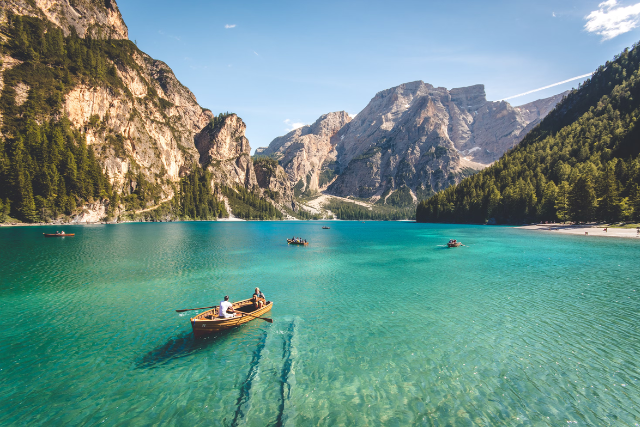We start our journey around the world with Simon Ross at the Banff Centre for Arts and Creativity, an institute globally recognized for their place-based experiential approaches to developing leadership.
The Indigenous Leadership Program that Simon directs works from an ‘and-both’ position, interweaving themes that will be familiar to leaders in the Western traditions such as strategic vision and planning, performance evaluation etc with those that emphasise Indigenous ways of becoming such as identity and culture. So, whilst many of the terms used in the development of Indigenous leadership for this specific Canadian context may sound familiar, how they are engaged with and what meanings they hold to the leaders in this place, may be surprising.
Simon describes how organisational leadership is enacted when seated through the focus of the seven Grandfather or sacred teachings of love, respect, humility, courage, wisdom, honesty and truth. These lead to a place of ‘wise practice and right relations’ with space created for people to explore what these mean in their community or organisation in this particular context and what practices embody these.
Through hearing Simon’s tales of leading kayak-based adventures in the Canadian bush, reconnecting tribes with traditional ways, working forays in foreign lands and eventual entry into governance and academia, we start to appreciate how essential bringing the whole person, the experiences they have absorbed, the whole story of how and where they are rooted, is to understanding how and why they lead in the way they do.
Themes and questions emerging from our conversation
- The wise practices-right relations that I live at work should map onto the wise practices and right relations at home ie, I should be consistent in how I show-up in the world, adapting the expression of this for the context. For example, if right relations means I welcome people into my home, then I should be welcoming and open in my work place too.
- In leadership we need to make things happen, but we need to make sure we’re making them happen in a right way. ‘How’ is as important as ‘what’.
- Equally integrating old and new, Indigenous and Western, ways of leading can be more holistic, more satisfying and sustainable for the organisation and its people than an either-or approach.
Questions for reflection
How do we help people have the courage to be able to do something, whether it is to listen, to learn, to intervene….?
As leaders, how are we empowering and growing people for greater success? What practices support this?
How do we bring our whole selves into our leadership?
Throughout his career, Simon has stood at the forefront of developing meaningful connections and has built a reputation as a catalyst in championing the empowerment of individuals and communities.
Working with the Ktunaxa First Nation on their social governance initiative, Simon provided support and guidance to leadership based on research and evaluation of the Indian Act and British Columbia legislation to support their community development of strong, healthy individuals, families and communities. This research and experience ignited Simon’s passion to explore Indigenous leadership in greater breadth.
As a senior health program advisor in his previous role at Alberta Health Services, he partnered with healthcare providers to better understand the diverse needs of First Nation communities in planning quality programs and services. In the areas of education and career development, Simon worked as liaison between Indigenous workers and future employers and initiated culturally based Indigenous and non-Indigenous skills and leadership training programs.
He has provided operational leadership in funding, program advancement, strategic planning, board governance and community and governmental relations.
Find out more about the Indigenous Leadership Program at Banff Centre for Arts and Creativity.
About the author: Dr Jo Chaffer is an Advance HE key global associate. She is a practitioner working with higher education leadership and strategy globally for over a decade. She is also part of a research group at the University of New South Wales in Sydney, Australia.
This article has been kindly repurposed from Advance HE and you can read the original here.
